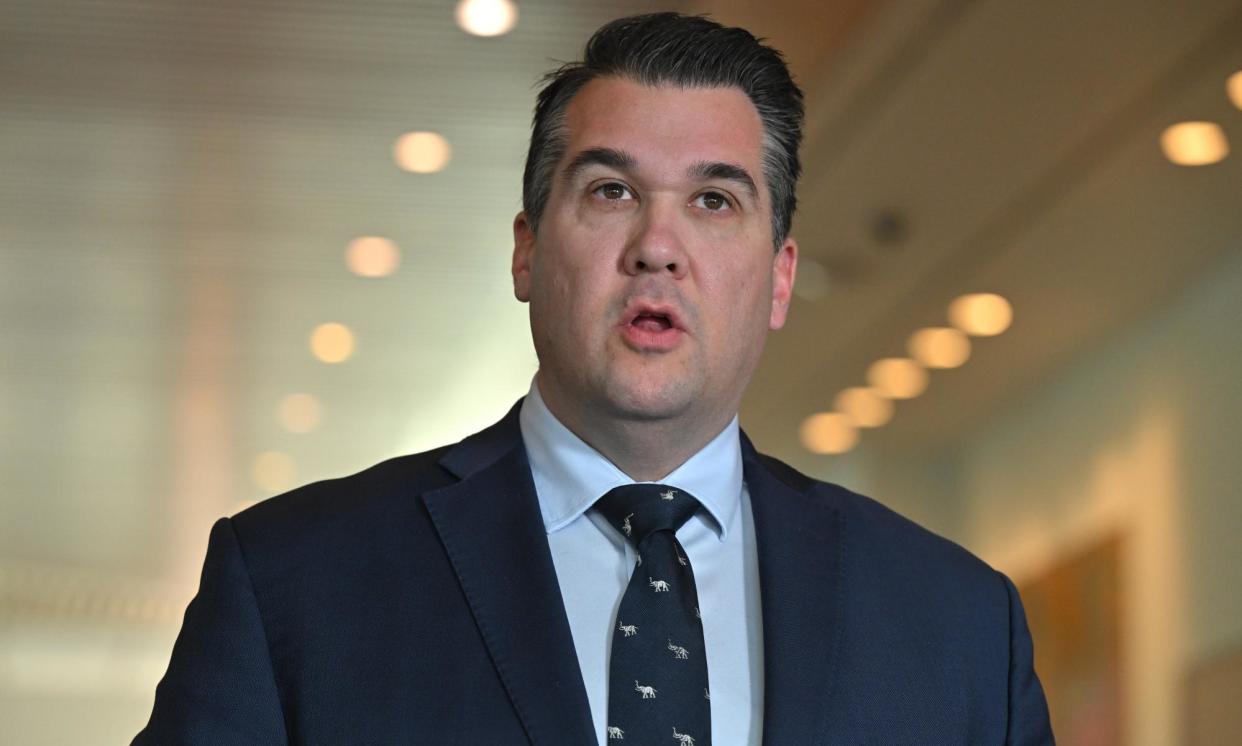Coalition flags expanding super for housing policy amid increase in house prices

Michael Sukkar has flagged that the Coalition could expand its super for housing policy to increase the amount that first home buyers can withdraw in response to rising prices.
The shadow housing minister said on Monday it was a “good point” that the original proposal for a single person to withdraw $50,000 was conceived before the 2022 election when prices were lower and may need to be revised – although the “broad strokes” would remain the same.
Sukkar’s comments come as the Coalition looks to rebound from its slightly underwhelming performance in the Dunkley byelection, with promises to bolster its policy offering particularly in housing and energy.
Related: Bleak outlook for first home buyers as RBA rate rises eat deeply into disposable income
Although the opposition leader, Peter Dutton, insisted on Monday that he intends to win back outer and inner metro seats, there are differences emerging particularly on nuclear energy, with the former MP Jason Falinski claiming the party is “not necessarily” advocating it as the preferred option.
Sukkar told ABC Afternoon Briefing the Coalition has recommitted to allowing first home buyers to access $50,000 from their super – which is repaid if they sell the house – to use as a deposit.
Asked if the Coalition may need to revise up the amount that can be withdrawn, Sukkar replied: “We will have more to say about that policy and the range of other policies.”
“It is a fair point you make but we will consider that in the context of the full suite of policies for the election.”
“Let’s remember, for a couple that is $50,000 each, so for a couple it is $100,000 towards your deposit, in addition to other savings, because we think it is a very compelling policy that we took to the last election. It will be refreshed in the context of what we take to the next election.”
A Liberal, who spoke on the condition of anonymity, said the party must avoid “low-rent culture war issues” and that they did not think the Sussan Ley tweet referring to “foreign criminals” ahead of the Dunkley byelection had “helped”.
Ley, the deputy Liberal leader, refused to delete a tweet claiming “Victorian women being assaulted by foreign criminals”.
The Liberal said nuclear power was set to be a “key piece” of Coalition policy because it would achieve the dual aims of helping to reach net zero emissions by 2050 and promote energy security.
But others are not so sure. Liberal MP James Stevens, who holds the Adelaide metro seat of Sturt by a 0.5% margin, said that “embracing nuclear generation for civilian electricity purposes is not something to be done on a whim”.
The Coalition is expected to announce an energy policy including lifting the ban on nuclear energy and nominating potential sites for power stations, but it is unclear how it hopes to overcome the enormous cost, long lead-in time and lack of private investment to make them a reality.
Stevens told the ABC he supports “continuing to put more detail on specifics out there into the community” but added “it’s a very big decision for us to make as a nation, to embrace nuclear power”.
“Australians quite rightly will want an answer to a lot of questions about how we will avail ourselves of that opportunity, how we will deal with some challenges, such as the custody of waste, the location of these generation plants.”
On Monday Falinski, who lost the seat of Mackellar to the teal MP Sophie Scamps, and Tim Wilson, who will seek to regain his seat of Goldstein from Zoe Daniel, wrote in the Australian Financial Review that the Liberals need to retake its heartland seats.
Falinski told Sky News that “nuclear energy is not something that we are necessarily advocating for … What we’re saying is that it should be part of the mix, part of the option available for Australian policymakers.”


